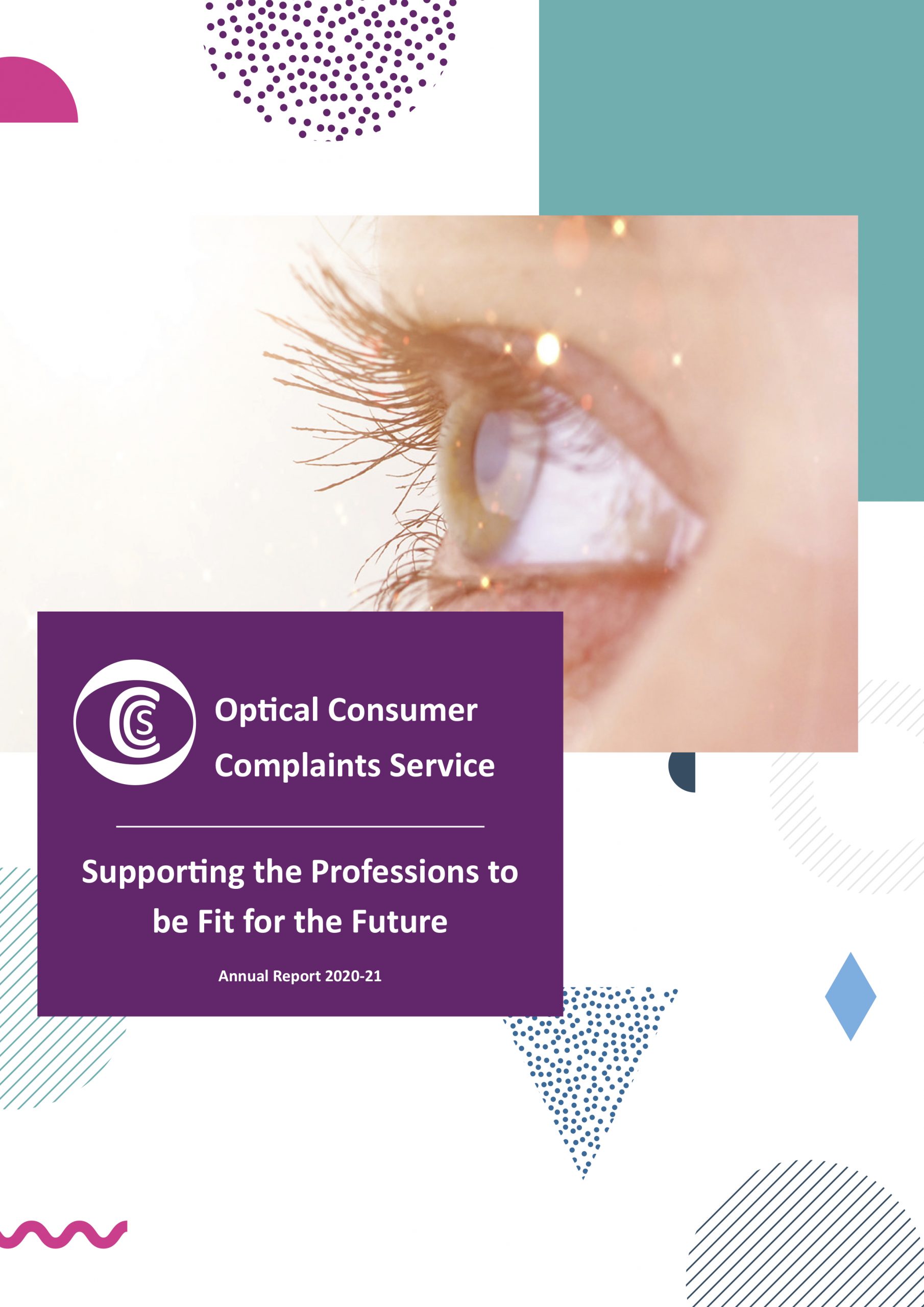OCCS Insights Part 3: How to avoid complaints
It is a truth universally acknowledged that businesses would rather not have to deal with complaints. Though they may, in some instances, identify things which can be improved in a product or service, any kind of negative feedback generally produces additional stress that business owners would rather avoid.
At the Optical Consumer Complains Service (OCCS), we are uniquely positioned when it comes to understanding what drives consumers to complain. Indeed, having provided a complaints mediation service to the optical sector since 2014, we have spent a lot of time reviewing data that has revealed trends and common themes which underlie many complaints. The themes that have emerged in our analysis have ultimately enabled us to identify useful mitigation strategies, which can be used by optical professionals to reduce the likelihood of receiving a complaint.

Latest report looks at impact of pandemic on optical sector
In our latest annual report for 2020/21, Supporting the professions to be fit for the future, the OCCS reveals how Covid-19 has fundamentally changed the overall complaint landscape in the optical sector. The report explains how social distancing measures and government enforced restrictions are producing and exacerbating new kinds of complaints.
In other words, the reasons consumers are complaining now are different to the reasons which led them to complain in years gone by. It is clear that a brand new roadmap for optical professionals is needed if they are to smoothly navigate the ‘new normal’ and avoid complaints.
What are consumers complaining about in 2021?
The largest trend in complaints that the OCCS has detected since March 2020 has everything to do with communication. More explicitly, it is clear that complaints are emerging out of – and being compounded by – the inability for consumers to interact with opticians in the traditional way.
Instead of simply visiting their optician and providing feedback, consumers are now finding themselves calling and emailing when faced with a concern relating to products and services. A much more protracted approach to dealing with issues, this process has clearly caused frustration amongst consumers that has led their feedback to be elevated to formal complaints.
When reviewing the actual nature of complaints, the OCCS report in its latest annual report that ‘customer care’ and ‘goods and services’ are the two prevailing categories. Looking a little more closely, there were errors with prescriptions as well as products that led most consumers to raise a dispute with their optician.
These are clearly not complaints that are incapable of being resolved at a local level. However, when there is a breakdown in communication, and when consumers do not feel that their concerns are being fairly or swiftly responded to due to using alternative channels, they feel compelled to instigate a formal complaint.
Altogether, consumers in the optical sector are still facing the same kind of product and service challenges that they have for many years, but there is now an additional barrier which exacerbates matters and creates the foundation for a formal complaint.
How do optical professionals avoid these complaints?
An effective strategy for optical professionals to implement when faced with a complaint is to take the time to properly understand what is being reported. Often, consumers are willing to resolve their issue without formally elevating matters, but can become quickly frustrated if they feel communication is breaking down.
In the event that a consumer is still unsatisfied, the OCCS remains on hand to provide a thorough and impartial mediation service, which seeks to identify the cause as well as the most effective solution to a complaint. Whilst the annual report states that resolutions have proven to be more challenging due to the financial and emotional stress of the pandemic, the organisation has developed robust strategies over the course of the past year and a half which allows them to resolve things in an efficient and effective manner.
Of course, as restrictions are lifted and consumers are able to once again interact with opticians in person, it is likely that complaints relating to communication failure will reduce. It should, however, be stressed that a complete return to normal is unlikely. Indeed, many consumers have adapted to the changes brought about by Covid-19 and it is simply unrealistic to expect the entire population to embrace
It is for this reason that developing communication skills will ensure that professionals in the optical sector remain resilient for some time to come. Indeed, there is nothing remotely harmful about improving the ability to communicate with consumers.
In an ideal world, it would be possible for the sector to constantly refine and eventually eliminate all complaint risks. In a Covid-19 world, however, it is a case of constantly learning and adapting to the evolving nature of consumer complaints.
With a finger firmly on the pulse of the sector, the OCCS will continue to share the latest insights as we move forward into unknown, yet far more optimistic territory.
To find out how the OCCS, and the mediation services it provides, can help improve the resilience of your practice, please do not hesitate to get in touch today. Telephone 0344 800 5071 or email enquiries@opticalcomplaints.co.uk
The Optical Consumer Complaints Service is provided by Nockolds Solicitors.